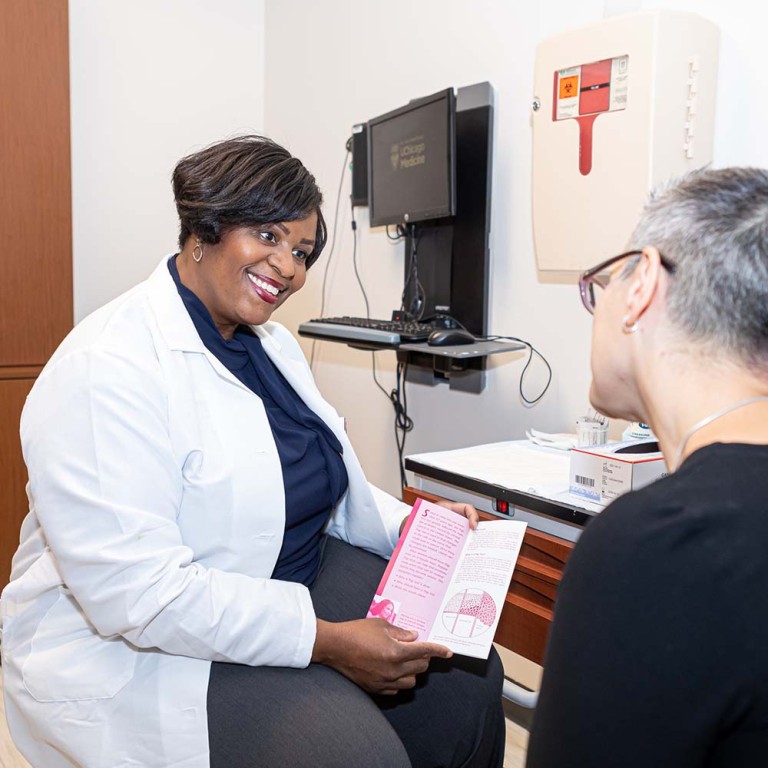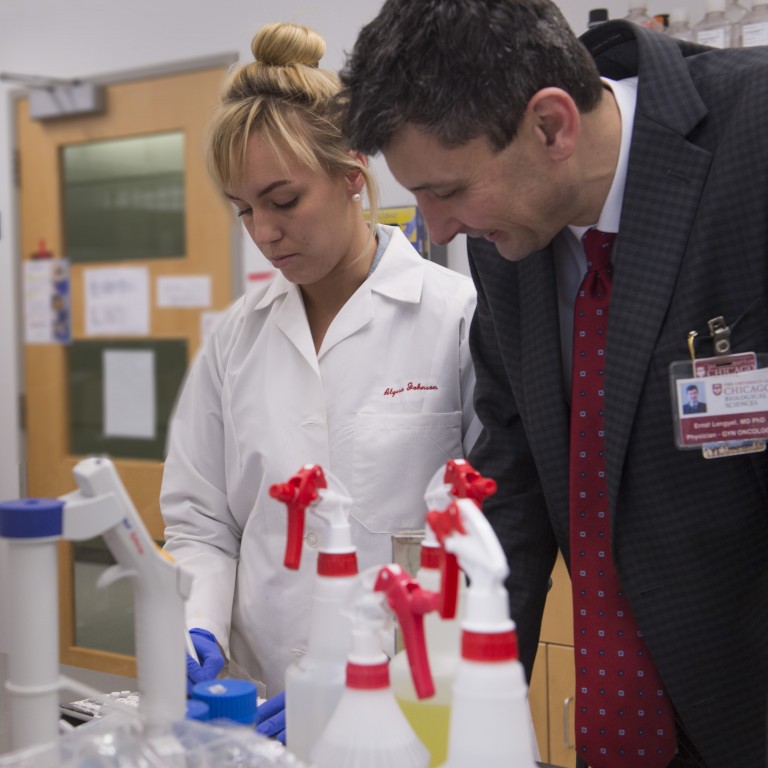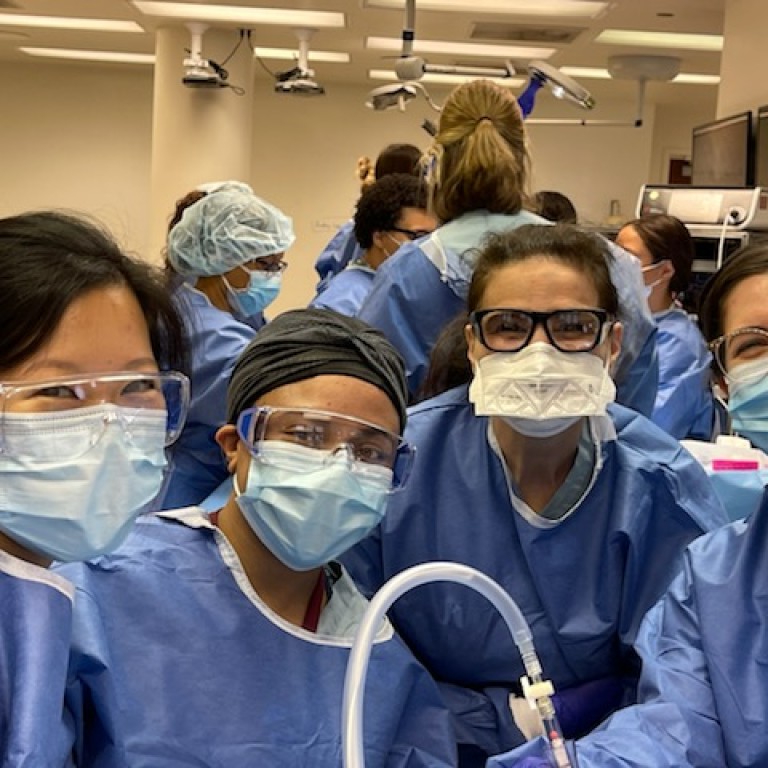Here are some frequently asked questions regarding the abortion or miscarriage process:
Are there self-pay options available?
Yes, please call (773) 702-6118 for information about self-pay options and costs.
First-trimester pregnancy termination (abortion) options:
In the first trimester of pregnancy, you will most likely have two options for termination. One option is a procedural abortion, called a dilation & curettage (D&C), which can be performed in the office or the operating room. The second option is a medication abortion, which is completed at home.
How do I choose between a D&C and a medication abortion?
The choice between a medication abortion and a D&C is mostly a personal decision. Below are the differences between the two options.
| Medication Abortion | Procedural abortion (D&C) |
|---|---|
|
|
What is a D&C?
A D&C is a simple procedure used for the termination of pregnancy. It can be safely completed in the office in the first trimester. During the procedure, the doctor will gently open the cervix and remove the pregnancy using gentle suction. The whole procedure lasts about 10-15 minutes.
Anesthesia options:
You can have your procedure in our clinic while awake, using oral pain medications and numbing medicine in the cervix. We also have the option of anesthesia in the operating room.
Can I get birth control during my visit?
Your healthcare provider will discuss all your birth control options with you at the time of your visit.
An abortion can be completed safely using medications. The process begins in the office and will finish when you are at home. The process will be like having a miscarriage at home.
Will I experience pain?
During the heaviest part of the bleeding, you will experience cramping that will feel like strong period cramps. You will be given a prescription for pain medication that you can take at home to help control the pain.
Do I need to come back?
To ensure that the pregnancy has passed, you will need to return to the office 1-2 weeks after your first visit so that you may have an ultrasound. You also have the option to complete a telephone follow-up that includes taking a home pregnancy test or returning for an ultrasound.
Can I get birth control during my visit?
Your healthcare provider will discuss all your birth control options with you at the time of your visit. Some options related to your insurance coverage may be limited.
Is abortion safe?
No matter what option you choose for your abortion, modern-day abortions are safe and effective. Millions of pregnant people undergo abortion in the United States each year. The complication rate for patients undergoing an abortion is very low, and the risk of serious complications is much less than that of childbirth.
Can I bring someone with me to my clinic appointment?
Yes, you can bring a support person with you to the appointment. We do ask that no children be brought to appointments.
Can I eat and drink before my appointment?
You may eat and drink normally before your appointment. If you are undergoing any additional procedures or a procedure on another day, the doctor will give you instructions about eating and drinking.



